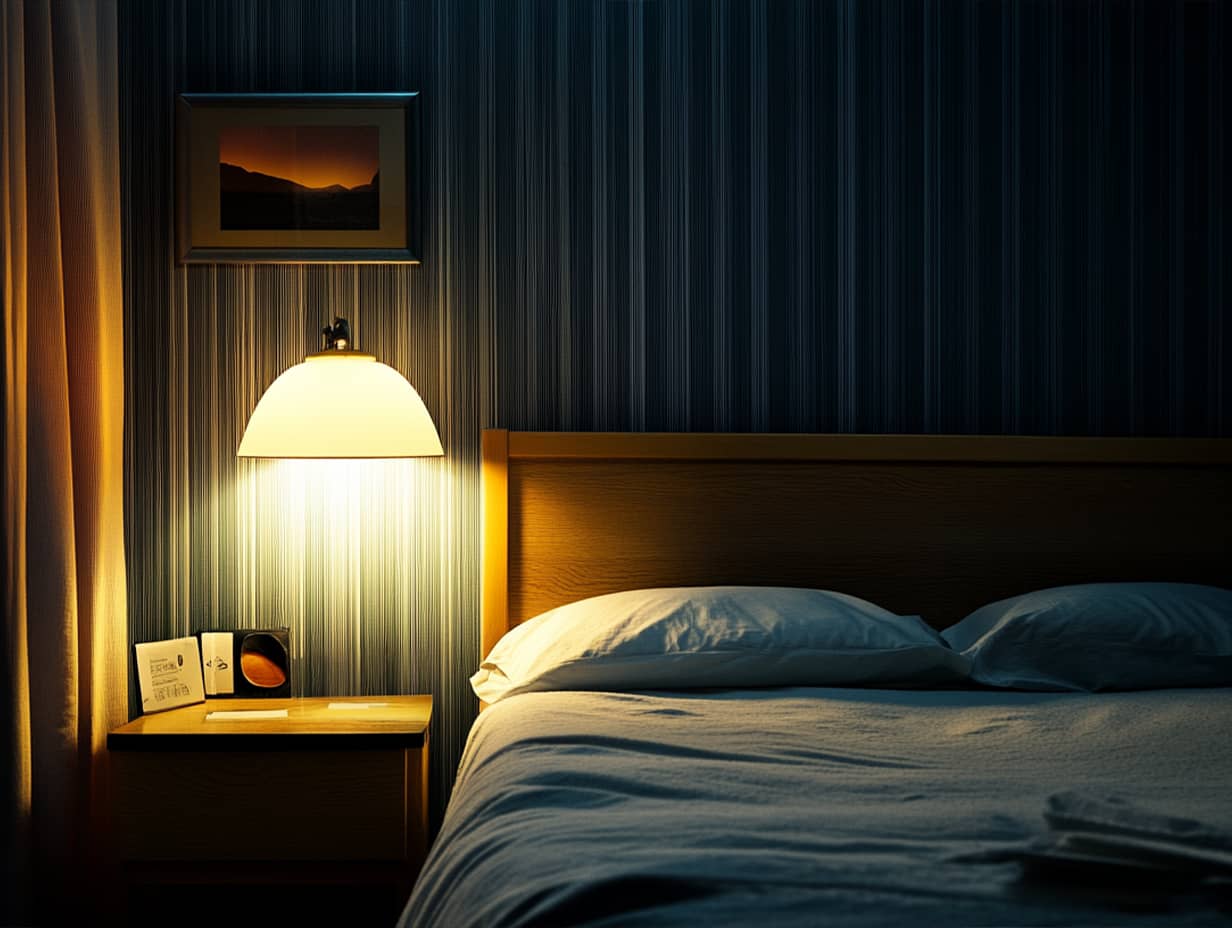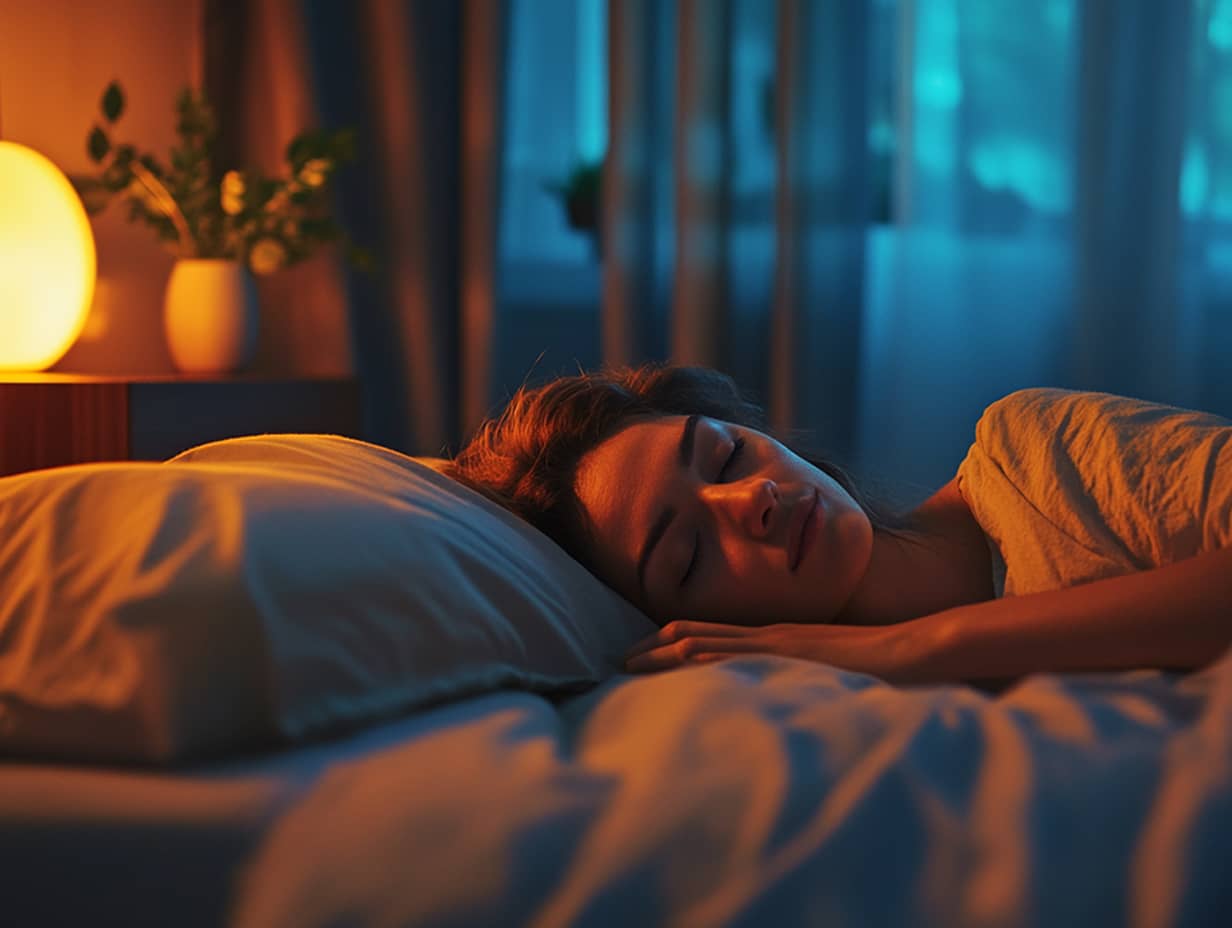How To Avoid Military Sleep Deprivation to Enhance Morale
Sleep Health
Oct 12, 2024
Share this blog:
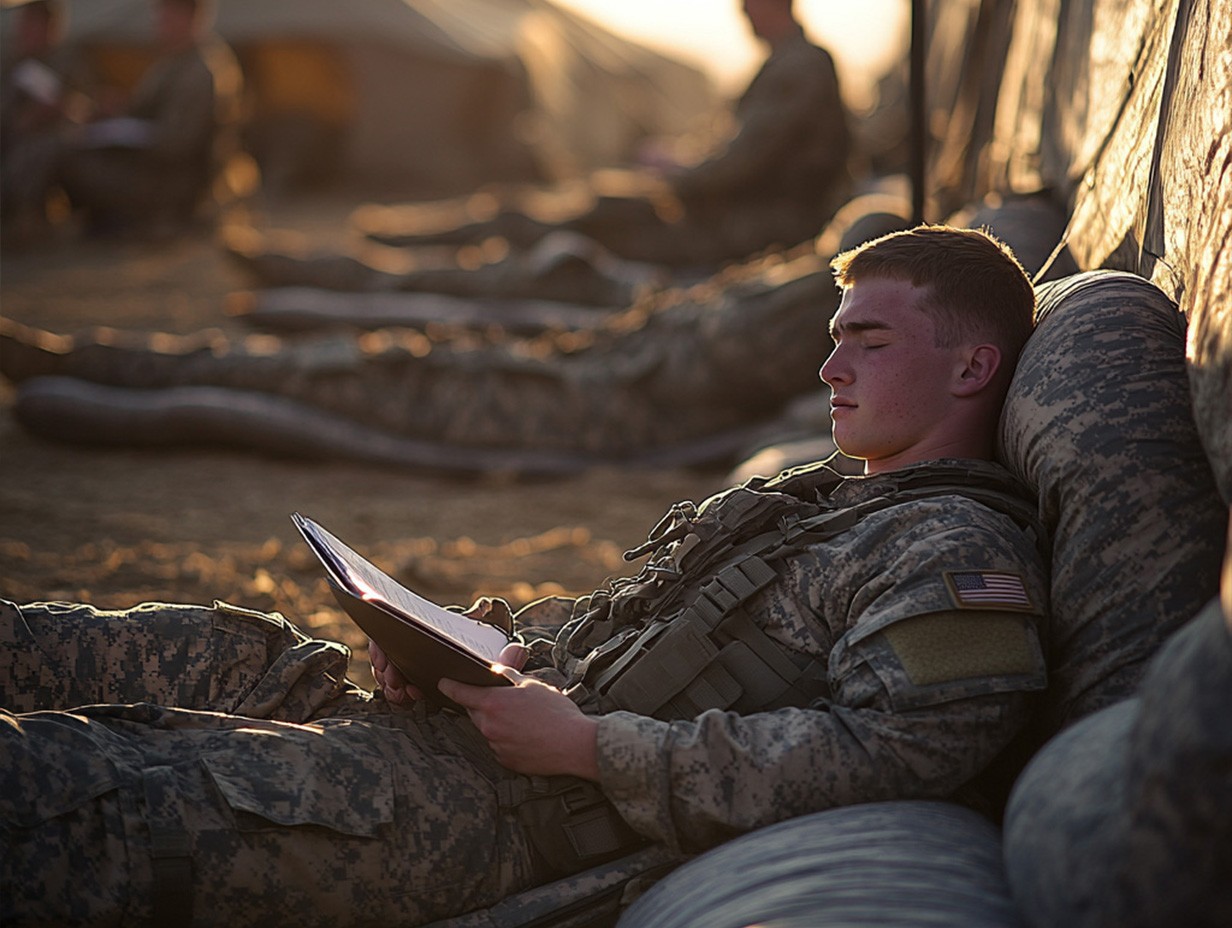
The Hidden Power of Sleep in Military Performance
Picture this: A military operation goes awry when a sleep-deprived soldier misinterprets intel. Without knowing, this can lead to a near-catastrophic miscalculation. While hypothetical, this scenario underscores a real challenge in military settings. it highlights the insidious impact of military sleep deprivation.
In military operations, performance-enhancing sleep is more than a nice-to-have. It's a critical component of mission success. Circadian rhythms regulate our sleep-wake cycles and play a role in decision-making and physical performance. When these rhythms are disrupted, the consequences can be dire.
A well-rested soldier is more alert, makes better decisions, and can sustain peak performance for longer periods. Conversely, sleep-deprived personnel are more prone to errors. They also have slower reaction times and may struggle with team coordination. It's not just about individual performance either. Sleep management is crucial for enhancing unit cohesion and morale among military personnel.
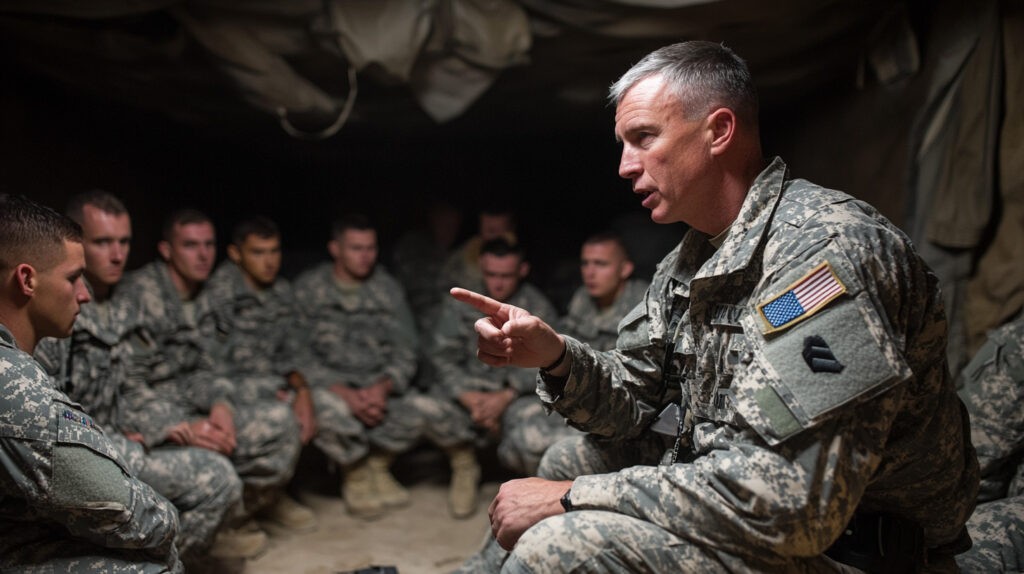
The Science of Sleep and Its Impact on Military Readiness
Understanding the science of sleep is crucial for optimizing military readiness. Our sleep cycles play a vital role in cognitive function. During sleep, our brains undergo essential processes like memory consolidation and toxin removal. These processes are critical for maintaining peak mental performance.
Sleep deprivation can have severe consequences on military personnel's abilities. It impairs decision-making, slows reaction times, and diminishes physical performance. Imagine a soldier operating complex machinery or making split-second tactical decisions. if they're functioning on inadequate sleep, the potential for errors will skyrocket.
Research consistently shows a strong correlation between sleep health and military performance metrics. A study by the Naval Postgraduate School found that:
Soldiers who got less than 6 hours of sleep per night were 15% less accurate in marksmanship tests
Cognitive performance declined by up to 30% after 24 hours without sleep
Reaction times increased by 50% in sleep-deprived individuals.
But How Does Sleep Affect Mental Health in Military Settings?
Chronic sleep deprivation can lead to increased stress, anxiety, and even depression. It's a vicious cycle - poor sleep exacerbates mental health issues, which in turn make it harder to sustain sleep. By prioritizing performance-enhancing sleep, we're boosting physical and cognitive abilities. We're also safeguarding the mental well-being of our troops.
Sleep Challenges Unique to Military Personnel
Military personnel face unique challenges in managing their circadian rhythms and sustaining sleep. The military environment is rife with sleep disruptors. Over time, this can wreck precious performance-enhancing sleep. Irregular schedules, constant noise, and high-stress situations are some factors that throw off soldiers' cycles.
Deployment and combat situations further exacerbate these issues. The circadian pacemaker struggles to synchronize in unfamiliar environments. It's especially hard when coupled with the intense stress of combat. Soldiers often find themselves in a state of hypervigilance. This makes it difficult to transition into restful sleep even when the opportunity arises.
Irregular schedules disrupt natural sleep-wake patterns.
Constant noise interferes with the ability to sustain sleep.
High-stress situations activate the sympathetic nervous system, making it challenging to wind down.
The long-term effects of chronic military sleep deprivation can be severe. Prolonged exposure to these sleep challenges can lead to a cascade of health issues, including:
Decreased cognitive function and decision-making abilities
Increased risk of mental health disorders
Compromised immune system function
Higher rates of accidents and errors in judgment
Military leaders must recognize these sleep challenges. That's the first step to implementing strategies to protect their personnel's sleep health. By doing so, they can enhance unit performance and maintain the high readiness needed in military operations.
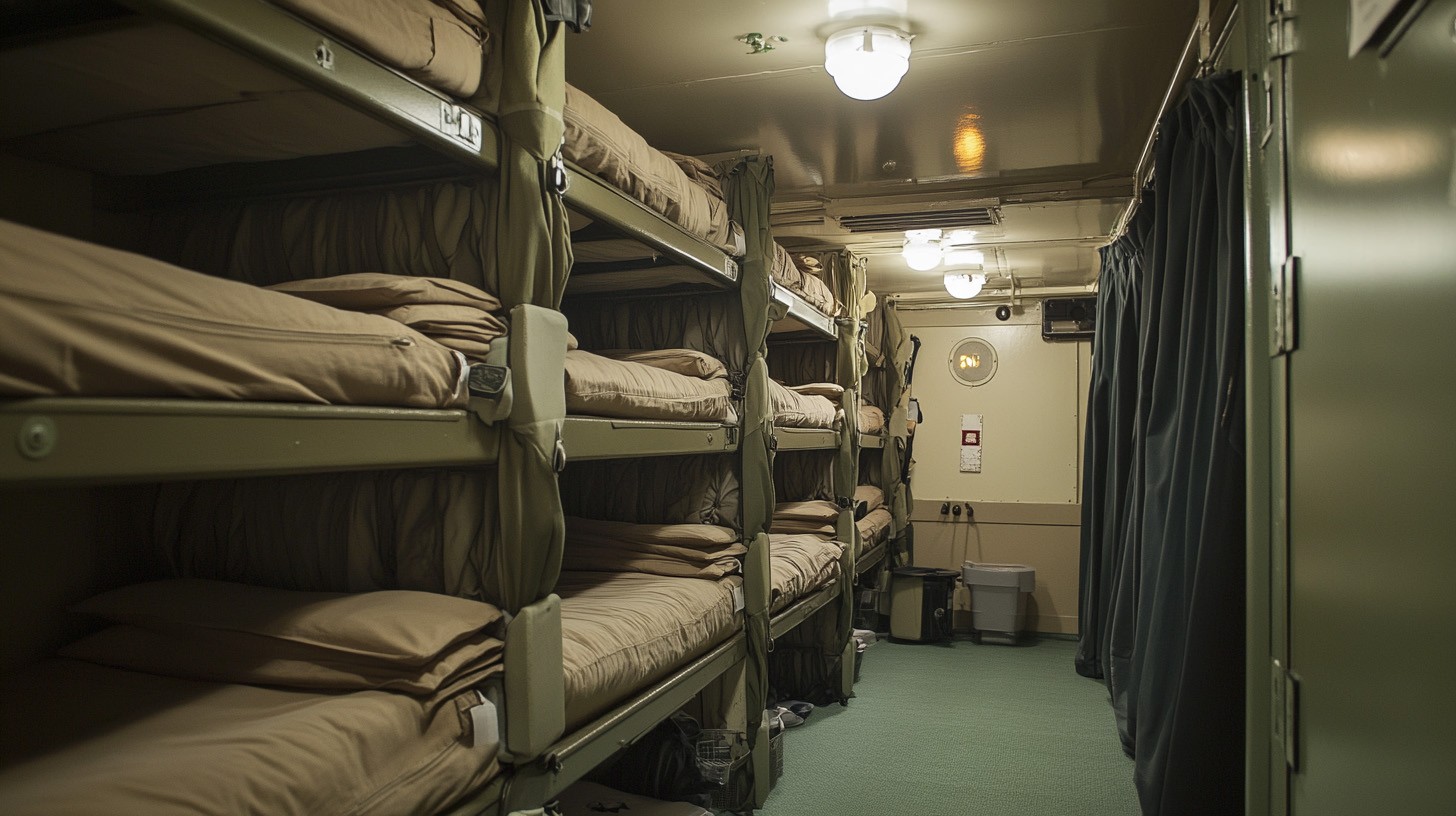
What is The Military Sleeping Method
The military sleeping method, also known as the military sleep technique, is a rapid sleep induction approach. It's developed to help soldiers fall asleep quickly in challenging environments. This boosts performance by promoting efficient sleep, even in short windows of opportunity.
The technique involves a series of steps designed to relax the body and mind. Military personnel prepare themselves for sleep by:
Relax your facial muscles, including your tongue, jaw, and the muscles around your eyes
Drop your shoulders and relax your arms, one side at a time
Breathe out, relaxing your chest
Relax your legs, starting from the thighs and working down to your feet
Clear your mind for 10 seconds by imagining a relaxing scene
If you're still awake, repeat the phrase "don't think" for 10 seconds
The Military Sleep Technique
The military sleep technique is rooted in understanding and managing our circadian pacemaker. By following this method, soldiers synchronize their circadian rhythms with their demanding schedules. This promotes better sleep health and sustained sleep even in challenging conditions.
While developed for military personnel, this technique benefits anyone looking to improve their sleep. Incorporating this method into your sleep routine may make you fall asleep faster with restorative rest. Over time, you'll enhance your daily performance and well-being.
Strategies for Improving Sleep Quality in Military Settings
Enhancing sleep health in military settings requires a strategic approach. Each is tailored to the unique challenges faced by service members. Let's explore practical strategies for optimizing sleep environments even in challenging conditions.
For barracks and field environments:
Minimize light exposure: Use blackout curtains or eye masks to create a dark sleep environment. These are crucial for sustaining sleep and synchronizing circadian rhythms.
Control noise: Employ earplugs or white noise machines to mask disruptive sounds. This helps you create a more conducive sleep atmosphere.
Regulate temperature: Aim for a cool, comfortable sleeping environment (around 65°F or 18°C). The cooler temperature supports the natural drop in core body temperature during sleep.
Sleep hygiene practices for military personnel:
Establish a consistent sleep window: Even with irregular schedules, maintain a regular sleep-wake cycle.
Create a pre-sleep routine: Develop a calming routine before bed. This signals your circadian pacemaker that it's time to wind down.
Manage mealtimes: Avoid large meals close to bedtime, as this can disrupt nighttime physiology and impair sleep health.
Limit caffeine and alcohol: These substances can interfere with sleep architecture, so cut consumption. This is especially important in the hours leading up to your sleep window.
Remember, prioritizing sleep health is about individual well-being and maintaining peak military performance. These strategies help service members optimize their sleep, even in challenging military environments.
The Role of Leadership in Promoting Healthy Sleep Habits
Leadership plays a pivotal role in promoting performance enhancing sleep within military units. Commanders who prioritize sleep health set a powerful example for their troops. The’ll demonstrate that rest is not a luxury, but a critical component of military readiness.
To integrate effective sleep management into training programs, leaders should:
Educate personnel on the importance of synchronizing circadian rhythms
Implement structured sleep schedules during training exercises
Teach strategies for sustaining sleep in challenging environments
Emphasize the connection between proper mealtimes and sleep health
By prioritizing sleep, leaders can significantly enhance team performance and unit cohesion. Well-rested troops demonstrate improved decision-making skills, faster reaction times, and better emotional regulation. This leads to effective communication, stronger interpersonal relationships, and a more cohesive unit.
Sleep as a Force Multiplier
Let's recap the critical role of sleep in military performance. Performance-enhancing sleep isn't just a luxury; it's a force multiplier. The potential for improved sleep health to boost military effectiveness cannot be overstated. Consider this:
Enhanced situational awareness
Improved reaction times
Better emotional regulation and stress management
Increased physical endurance and recovery
To our military leaders, it's time to prioritize sleep management in your units. Implement strategies to protect sleep windows, manage mealtimes, and leverage light exposure. By doing so, you'll improve individual sleep health and build an effective fighting force.
Remember, in the military, they say, "We don't rise to the level of our expectations; we fall to the level of our training." Let's ensure that training includes mastering the art and science of limiting military sleep deprivation. Your circadian pacemaker is a powerful ally – use it wisely, and watch your unit's effectiveness soar.
Stay Informed with Dr. Landry's Monthly Health Insights
Subscribe to our monthly newsletter and stay up to date with the latest in sleep science, nutrition to optimize your health and performance. Join our community and take the first step towards a healthier you!
Discover Your Sleep Quality
Free Assesment
Uncover how well you’re really sleeping and get personalized tips to improve your rest and overall health. Take the first step towards better sleep with our free assessment.
